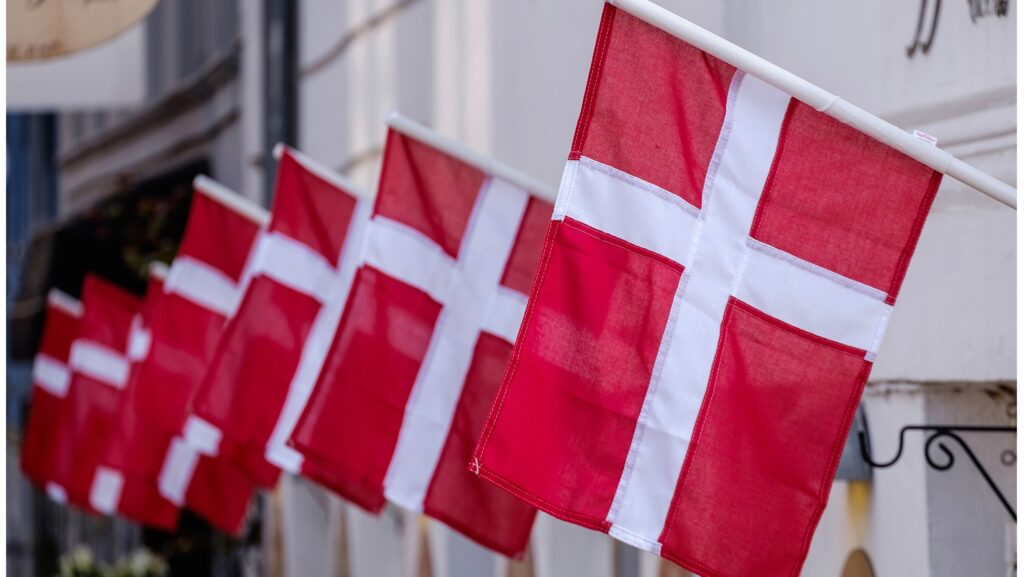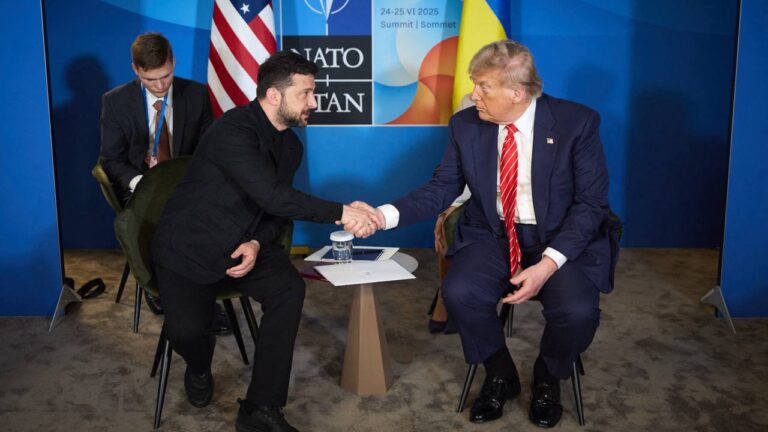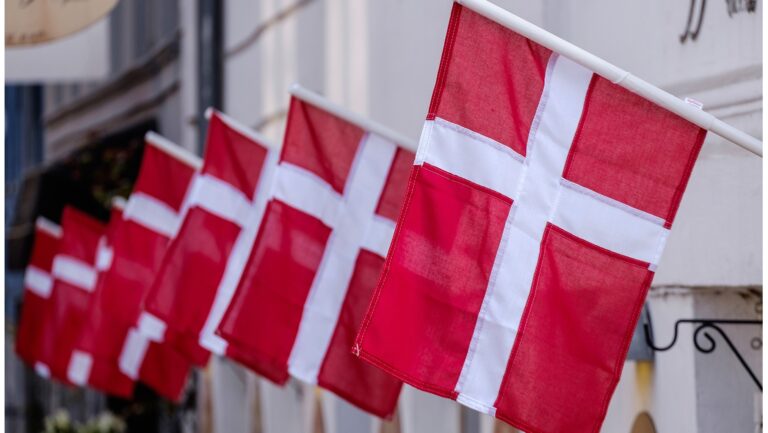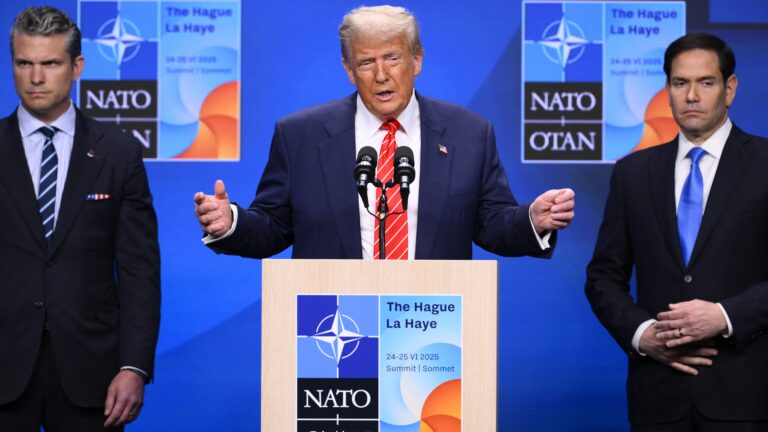András Lánczi Interviewed by Hungarian Conservative
The Fidesz Party exists and will survive for as long as Viktor Orbán remains active in politics, according to the philosopher András Lánczi. What is the ideational underpinning of Hungary’s current administration? What is the moral stance to be adopted toward the luxurious lifestyle of the political elite? Why has he been to Brussels only once? The rector of Corvinus University of Budapest also answers questions about higher education reform.
Are we seeing a conservative revolution in Hungary?
What we have been witnessing for the past ten years is an escalating intellectual process that is fraught with emotion while being amenable to rational interpretation. I am not sure you could call it a revolution. It certainly represents a revolt and intellectual pathfinding by new generations, and their passionate engagement with reality, all of which inform the ongoing discovery of the conservative mindset. But one must be careful about terming it a revolution. Incidentally, I have never identified myself as a conservative, although I am readily lumped in with this category. Conservatism does not have its own methodology, but it does have deep roots in philosophy. Therefore, we do not have a canon that can clearly tell us who is conservative and who is not.
Márton Békés does call this phenomenon a revolution. The question then arises whether it makes sense to talk about a revolt when we have had a conservative government in power for ten years…
But there is always something to revolt against, you see! The revolt mounted by the generation in their twenties, thirties, and forties today springs from the nature of the regime change, from the fact that intellectual doors were opened, but the absence of mentors made the directions to be taken vague. The young did not have a chance to come round to a different worldview than the one they had been taught at school in the old educational system. What they encountered in secondary school and academia was the same Marxist, progressivist, technocratic concept of the world, these days sugar-coated with liberalism. They had to take the explanations offered as the optimal solution to their problems and doubts about fashioning a way of life, and compare them to their own personal experience. It has turned out that the liberal worldview of the day failed to provide them with genuine, satisfactory guidance in practice. This eureka moment brought intellectual liberation for them. They realized it was possible to blow the dust off books and thoughts that had been shelved for a long time, even if these do not fit in with the intellectual mainstream around the world today. This is at the heart of the sentiment or spirit you might call revolutionary. No progressivist has the right to tell us what should be scrapped, intellectually speaking.
A few years ago you said we were still in the midst of the post-communist era. Have we put the regime change behind us since then?
There is but one guarantee for a regime change that is still under way as we speak, and that is the person of Viktor Orbán. He is a man whose thinking is motivated by the single-minded will to truly break with those decades that have been so deeply ingrained in the mentality, attitude, and culture of the people. He knows that without a new morality, i.e. new answers to how we should live, we will never truly leave behind either communism or the perils of modernity. It is the unambitious mindset we must break with, and that is a tall order. We need a cultural, mental overhaul to make it happen. The prime minister knows this full well, and this is what motivates every decision he makes, no matter what the opposition says. Post-communism will not end until we feel that it has ended.
What is the ideational foundation of the current administration?
The prime minister has a carefully considered vision of the state as the preeminent institutional framework of the Hungarian political and cultural community. He has firm ideas about who we are in this corner of the world, where we came from, and what kind of problems we face. All of this fuels his quest for sovereignty, which plays a key conceptual role in his steering of the ship of state, his national, economic, and foreign policy, and his stance towards the EU. And it is this approach that defines how he relates to people, democracy, and culture. All major politicians should be able to come this far, but few can actually do it; most lose their way in daily skirmishes and tactical moves. For the past ten years, Hungary has clearly been governed along the lines of conservative ideas and principles. This may not be obvious in every single administrative measure, but it is certainly true for the general thrust of governance.
Is it acceptable for a government to cite conservative political principles to justify amending the constitution and prescribing roles in the family?
It is not inappropriate for the government to do so, and not simply because it enjoys a two-thirds majority democratic mandate from the electorate, now for the third term in a row. In recent decades, Western civilization has reached a tipping point. We must choose whether to confess our ability and desire to vanquish nature by virtue of technology, or to admit that this path leads straight to the elimination of the human being as we know it. In other words, we either concede the thought, institutionalized two to three hundred years ago, which prioritizes secular, materialistic, and positive human rights and institutions, or else we maintain that human life cannot be reduced to any single doctrine. Western culture has begun to settle accounts with itself.
What do you mean by that?
The West has come out and declared it has no need for religion, philosophy, antiquity, or the Middle Ages. It started by removing religion from public affairs, and even from daily life, saying it was a matter of personal choice. That was followed by the wholesale erosion of philosophy, as exemplified by the works of Martin Heidegger. Finally, by placing technology on a pedestal, it began to squander what had been taken for granted in the premodern world: nature itself. But if we believe that we must stick with the traditional notion of nature that has served us well in the past, then we must insist on the very real dichotomy between man and woman. In Western civilization, conservatives have taken it upon themselves to examine and explain through education why these processes are leading us astray. This lends special importance to education in the liberal arts. The point is that classical erudition is indispensable, regardless of whether one is studying to become an engineer, an economist, or a philosopher. By choosing to scrap the liberal arts, we will only aid and abet the emergence of a new world that will be barbaric and neo-primitive. In this new world, opportunities will multiply owing to advances in technology, but we will no longer know who we really are. The struggle between the two viewpoints is intensifying everywhere as we speak.
What is your take on developments in the United States, which has entered a new era with the election of Joe Biden?
At the core of American identity is the idea that you can always start everything anew, at any moment. Yet I believe we will not have long to wait before it turns out that Donald Trump was far less alien to the American mind than many would have it
The former president was indeed very different from the liberals in the way he handled the media and his political opponents, and in the way he saw the United States, but in fact he was very much in line with the tradition as regards the distinctively American sense of a special mission, of being chosen. By adopting policies antagonistic to the former course, for instance by opening up the country’s borders, Biden will risk sparking fierce opposition. Remember that strict border protection enjoys broad-based support there. Meanwhile, soft power continues to be applied as usual; not that Trump himself was an exception to this rule. Ninety per cent of the films we see are American. They make people everywhere see their own needs through the lens of problems raised by the American lifestyle. We are entering a new phase of empire building, but it seems that no major changes are on the horizon. Reversing tax cuts for the rich is certainly nothing new under the sun. The United States should come up with something that will be new even in its own eyes, if only on account of the looming competition from China. But is Biden capable of pulling this off, physically and mentally? I doubt it…
You have said that the politics of the right differs from the leftist view in that it accords a central place to morality, beyond sheer interests and rational considerations. Has the government of Hungary passed the test on this count?
With higher flying colours than meets the eye, or it would hardly draw such fierce attacks from the opposition. These attacks normally accuse the cabinet of trying to foist on the people its own ideas about how they should conduct their own lives. In reality, every government does just that. The problem is rooted in liberal relativism. For liberals, the operation of democracy, human rights, and legal norms takes precedence over truth itself, as Richard Rorty points out. This makes me retrace my steps to the erosion of philosophy. If the insistence on truth is relative, then so is everything else, including nature itself. Let everyone decide what is best for them! This allows individuals to believe that they were created not to be a part of this world but to rule it as a divinity. But this will not work. This is no way to organize communities. To guarantee the coexistence of human beings takes more than just stating the rights of the individual. We are social beings. Bracketing this fact is prevented by our very nature. Come another major crisis, say an economic meltdown or another pandemic like this one, order itself will unravel unless we act collectively. For ten years now in Hungary, the administration has been using political tools to scale back the forces of moral relativism. Even though the liberal mindset continues to define the mainstream, credit is due to the government for its achievements in keeping this trend at bay. If we do not succeed, the cohesive force of the community will be impaired. And nobodywants chaos; we all want to live in peace and order.
Oligarchs fattened on public funds, luxury vacations by Fidesz politicians and their cronies—these are the counterexamples most frequently cited when it comes to assessing the morality of the government. Is there room for such missteps?
As for the props of a luxury lifestyle, everyone is free to decide how to live, and must shoulder the consequences. Luxury is nothing new under the sun. Regardless of the prevailing regime, there will always be people who think they need such things to feel good about themselves, and that they are entitled to them. The reason why an egregious lifestyle strikes us as morally reprehensible is that it makes wealth seem like an end in and of itself. In the early eighteenth century, the philosopher Bernard Mandeville raised a question in his piece The Fable of the Bees: What on earth could be wrong with luxury needs when the satisfaction of these needs contributes to the well-being of others, and thus to the flourishing of the economy? It all boils down to the kind of economy we live in. Some say that capitalism is the worst of all, along with everything it entails. In the Kádár era, there was a ceiling to personal consumption. These days there is no rational or morally justifiable limit, so everyone is free to decide what and how much he or she needs. I take the position of John Locke, who acknowledged every individual’s right to lead their life, but added that no one could tell others what and how much they needed to do it.
I am sure that most people will not be satisfied by this philosophical explanation.
It is true that a class of nouveaux riches has sprung up, but this is not an end in and of itself so much as a clear concept of community. We cannot deny that ‘all unarmed Prophets have been destroyed’, as Machiavelli observed in The Prince. You can have any number of fine political ambitions, but if you do not have the economic clout, you will not be able to implement them. The communists chose the route of nationalization to establish the economic foundation on which to carry out their agenda. The liberals acquired the same fortune through privatization. So who has the moral grounds to make objections? Public assets always constitute the ultimate collateral.
So you maintain your claim that ‘what is called corruption by some is but the central policy of Fidesz’. This statement of yours has crossed a threshold before.
I do stand by it. The masterminds behind early privatization threw out the idea of returning property nationalized by the communists to the original owners
Ninety per cent of the people lived in apartments allotted by the city councils, and during the democratic turn they were allowed to purchase them for pennies. Nobody talked about the fact that those homes, discounting the newly built project tenements, had been taken away from others! What really happened was that they used state property to purchase the goodwill of citizens, which made for a peaceful transition. Do you think that is morally defensible? Is it acceptable for someone to come into ownership of a home to the detriment of others? This goes a long way towards explaining why residential properties in the Eastern Bloc remain in private ownership while in the West everybody rents. What we are seeing is the fashioning of a new middle class—a standard in Western civilization. If you have no middle class, you will be constantly exposed to the threat of political radicalization. Just think of South America, where the slums succumb to unimaginable poverty while the rich defend their homes with special detachments. The politics being pursued in Hungary is a rational one. Let me repeat: what is often thought of as corruption is a matter of conscious policy which serves the interests of the nation above everything else. One of the cornerstones of this policy is the principle that people should make a living on work rather than on subsidies and social benefits. This policy has reaped its rewards. Today, about one million more Hungarians have a job than before 2010.
Has the government ever made an ill-advised decision in the last ten years?
It has, obviously. What is more important, though, is the fact that the administration does not proceed by abstract norms and five-year economic plans, despite frequent criticism from the opposition, but remains always ready to make corrections on the fly. A case in point was the mandatory closure of stores on Sundays. From the get-go the divisive nature of the measure was clearly evident, and the cabinet backed down when it saw the reluctance.
Let us turn to the future of the Fidesz Party in Europe. Do you think it was a reasonable decision to sever ties with the EuropeanPeople’s Party?
Fidesz was under pressure, and came down on the side of a rational decision. This had been going on for quite a while. For several election cycles, it had become apparent that the worldview of Fidesz as the governing Hungarian party would not toe the line of the People’s Party, or at least not the line advocated by some of the vocal forces within it. That family of parties had executed a major shift to the left in its values. I recall a specific episode from former days. In the early 2010s, I went to Brussels for the first and last time in my life, attending a meeting to debate a document summarizing the values embraced by the People’s Party. The discussion was moderated by Wilfried Martens, the former prime minister of Belgium. It was there and then that I realized that the values of Fidesz were not the same as those taking shape in the EPP at the time. Even then, a number of leftist ideas had found their way into that document. I was wondering how Fidesz would react. Well, I have not been to Brussels since then. You can buy Belgian beer here in Budapest, after all. [Laughing.]
Is it possible that both sides have changed?
Back around 1995 we had a conference about the European Union here at the University. Viktor Orbán attended as a politician of the opposition, and the talk he gave appeared in English in a university publication. That talk made perfectly clear everything he has been saying ever since, namely that it is all about empires taking turns. Already then, he pointed out the analogy with Moscow. The alliance of enlightened nations should essentially rest on the principle of the free flow of goods and labour. However, enlargement and increasing integration had begun to lend an imperial air to the EU, gradually tightening the reins on the freedom of member states. An empire cannot be democratic. It must be centralized, with all important decisions made at the discretion of the centre, or else chaos will run rampant. Recognizing this, Hungary’s prime minister, along with a few other politicians of similar convictions, criticized the apparatus in Brussels for insisting on calling the shots while being constantly mired in useless babble. Since the Iron Curtain came down, the forces in power in the EU have envisioned the step-by-step erosion of Western culture and civilization. Their perception of history is radically different from ours, from the conservative viewpoint, and also from the perspective of the European idea which rejects modern divisions between the left and the right.
Is there a credible chance for a new European right to emerge?
It is possible to make it anew, not only in America but in Europe, too, although it is far more difficult to accomplish over here. In short, it is not a vain hope, even if it may seem that the political forces with the potential to form a new right are yet to gather strength. There may be political associations from which a new European right could sprout, but it would take infrastructure and financial resources. It was with good reason that the prime minister said we could not pull this off alone, just by ourselves, unless we can win the support of a larger European state. Germany has been a real disappointment to us, because it cannot and will not snap out of the status quo. For us, conservative thinking means working in a form of political alliance with others. The place we found ourselves in after the Second World War prevented us from doing it any other way. And, in Germany, you had better have a microscope if you go searching for people standing up for conservative ideals today.
How much time does Viktor Orbán have left in domestic politics?
That is up to him alone. He will remain a decisive politician in this country as long as he wants to be, whether as prime minister or in some other capacity.
How do you get along with him personally? Do you still advise him?
We are on very good, I dare say friendly, terms. I have never formally been his adviser, no matter how many people believe otherwise. I am aware that he reads my work. Recently, he quoted a line from me in his state of the nation address. It was an aphorism I had lifted from the movie Rum Diary: ‘A liberal is a commie with a college education.’ Like me, he must have realized that this definition serves as an encapsulation of a good many books. Of course, the prime minister is an independent thinker in his own right, and I often use his texts and ideas myself. A friendship is based on affinity of mindset, while the relationship of an adviser to his employer is more political and technical in nature.
Does Fidesz have a future after Orbán?
Fidesz exists and will survive as long as he remains active in politics. I am not sure that the party will go by the same name after that, but that is pure speculation.
Do you know any politician at present who could take over from him?
There are quite a few talented politicians in the ranks of Fidesz, but talent alone will not cut it. It must be combined with many other qualities for someone to become a true leader.
Let us move on to higher education. A while ago you said that the key issue regarding the new university model experiment was whether business morale could be reconciled with academic morale, given that the vast incongruence between the two often leads to problems and conflicts, to put it mildly. Is the process rife with such conflicts at Corvinus?
Universities tend to be authoritarian institutions. This is why some, for instance Oxford, have been in business for eight hundred years. They are all characterized by an internal hierarchy, which carries a moral charge for the faculty and employees. It would be impossible, not to mention a grave mistake, to try and chip away at this authority. At the same time, every university operates as an institution. It is responsible for managing funds, subject to specific rules, and in charge of its own HR policy. Precisely because of its hierarchical nature, it is sluggish, with a low slew rate, so to speak, so it definitely needs innovation, and possibly managerial skills as well. Orbán’s plans for reform in this regard had been evident for some time, as he announced the imperative for academic renewal well before the actual model change came into focus. It is all happening as we speak, but it takes a tremendous amount of creativity, because there is no blueprint to follow. The process has been infiltrated by certain features familiar from the business sector and corporate mentality, which sometimes run against the grain of the authoritarian hierarchy intrinsic to a university. This generates tensions, but these can be resolved with the requisite degree of intelligence and commitment to the cause, as long as all the actors involved use this as a vantage point as they go about their duties.
Last year, application and admission numbers at Corvinus slumped compared to the year before. Could this be partially ascribed to doubts on the part of secondary school graduates and their parents about the model change and, specifically, about a university ostensibly loyal to Fidesz?
There was no significant drop in numbers to talk about, and moreover this year we are receiving as many applications as before. The reduced number of admissions reflects a conscious choice, in line with CorvinusUniversity’s declared ambition to become the principal training centre in charge of replenishing the economic-political elite. Incidentally, this had been the case before, so the strategic goal is hardly linked to the current government. We can only achieve it by watching and even raising our academic standards. This is all the more important because we cannot recruit more foreign students in any other way.
The model change provoked fierce opposition at the University of Theatre and Film Arts (SZFE), with both students and former faculty fearing indoctrination. Why did the Senate of Corvinus not take their side?
I explained that clearly last autumn, supporting my position by legal arguments, but remember that it had to do with a private letter of mine that had been leaked. The Senate, as the supreme body responsible for the operation and sovereignty of Corvinus University, is not obliged to debate any contentious issue. If it were, it would become dysfunctional instantly. It is like the general assembly of a corporation, in that it cannot be expected to table just any item on the agenda. Of course, you will see this completely differently if you happen to believe that universities must engage in politics. While Corvinus had been attacked on political grounds before, you would not be able to cite a single incident under my term as rector that would have been motivated politically. There was no purging. I understand that the spirit of rebellion is afoot at SZFE. Let them fight, I say, if this is their heart’s desire. They have the right to do it. But it is their internal affair, and they should not embroil the faculty and students of other universities in it. None of these institutions is homogeneous in terms of its political leanings. Therefore I cannot reasonably be expected to take sides with any specific position on the matter. I went by the same principle in the case of CEU, by the way. I do not recall any voices raised on my behalf when the Hungarian Socialist Party (MSZP) demonstrated against my appointment at the gates of the University. Or do you think that was all right?
Now that you mention it, do you think that the departure of CEU meant a massive loss for Hungarian higher education in general?
No, I would not say that. CEU had and continues to have an unambiguous political creed, and if you cast yourself as a political or politicized entity, you must be prepared to be handled by political means. Indeed, the very foundation of CEU was a political act. At the time, György Soros instructed— OK, requested—that Bálint Magyar ensure suitable circumstances for the university he had founded in Budapest.
Your term as rector expires this summer. What lies ahead?
I have several plans. I want to carry on with my own research projects, and will remain active in public affairs to the extent I find necessary. I chair a European foundation that fights for the survival of liberal arts education. They have been working on it for quite a while, and Hungary now has the potential to attain stronger positions in this field than ever before.
Translated by Péter Balikó Lengyel








